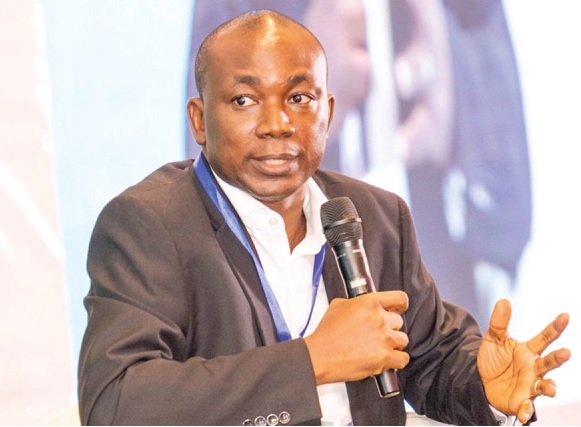
Achieving economic stability: Efficient tax utilisation key - Prof Bokpin
Economist and professor of finance at the University of Ghana, Professor Godfred Bokpin, wants the government to strike a fine balance between government’s operational cost and growth enhancing spending.
The economist explained that the country’s underdevelopment was not the result of inadequate collection of taxes but about efficient tax management.
Sharing his perspectives on the International Monetary Fund’s (IMF) review of the Ghanaian economy on Graphic Business’ Twitter (X) Spaces Dialogue Series yesterday, Prof. Bokpin compared the country’s tax to Gross Domestic Product (GDP) ratio to Malaysia and Singapore.
Those countries, he said, had the comparable GDP to tax ratio of about 16 per cent as Ghana, which was around 13 per cent.
However, their level of development as compared to Ghana’s was better because of efficient tax utilisation.
Prof. Bokpin stated that the over-reliance on taxes and revenue operations was hurting businesses, individuals and industries that would ultimately harm the competitiveness and long-term growth potential of the economy.
“If we continue like this, we would undermine our private sector which creates jobs,” he said, and urged the government to focus on reducing expenditure.
Prof. Bokpin explained that instead of burdening the faithful few who were in the formal economy, the government must widen the tax net by restructuring the economy to support an efficient tax regime.
“Out of a tax paying population of 13.4 million, only 2.5 million pay direct income taxes,” the professor of finance said.
“This country must strike a balance between government operational cost and growth enhancing space,” he said.
Burden sharing
Prof. Bokpin explained that although the government had suggested burden-sharing to revive the economy, it had shifted all the burden onto households and businesses through taxes, levies and tariffs, while maintaining the government’s astronomical expenditure pattern.
He said the government must immediately cut down on its operational cost, review some of its flagship programmes such as the Planting for Food and Jobs initiative and also reduce the number of ministers and government appointees to alleviate the present hardship on individuals and businesses.
“In any serious country, the pressure would have been on the government to cut down cost and adopt a lean government because there is no way the country cannot be run by 40 ministers,” he said.
Prof. Bokpin was of the view that the country’s problem was largely governance, large size of the government, inefficiencies and government’s wastefulness, including corruption.
He said the government must, therefore, realise that the IMF was not the solution to the country’s predicament, but rather the actions and inaction of the government.
“The best helping hand Ghana can find is not IMF, but our own hands,” he said.
New approach
To bring back the economy on the path to recovery, he said the government must also focus on priority spending in areas such as agriculture, agro business and agro processing.
“Food is a basic human right, and any country that cannot put food at quality and affordable level has failed because any government must put food first. It is not political, but Planting for Food and Jobs lacked focus; delivery department poor,” he said.
He said because the average Ghanaian spent 42 to 44 per cent of their disposable income or household expenditure on food, the more food inflation was addressed, the more capital space was freed to build up more capital.
“Food inflation is still more than 50 per cent, and that must be tackled aggressively,” he said.
Prof. Bokpin, therefore, called on the government to conduct an independent impact evaluation of the Planting for Food and Jobs initiative set up to address food security and food sufficiency in the country.
“Its implementation has been saddled with inefficiencies, political gimmicks, politics and politicians, and so it's not implemented efficiently,” he suggested.
Growth
Prof. Bokpin expressed optimism that economic growth was likely to be higher than the IMF's projection of 1.5 per cent.
However, he said the drivers of the growth should not give the country reason to celebrate.
The professor of finance explained that although growth must come along with job creation, the Bank of Ghana (BOG) data on real economic activity was still contracting, albeit at a slower pace.
“If you see that it is service which is driving the growth, it is not job-rich; same is agriculture,” Prof. Bokpin stated.
As a result, the growth envisaged under the IMF supported programme would not be sufficient or be quality and could not trickle down to the ordinary Ghanaian, he added.
Background
The Graphic Business is a brand of the Graphic Communications Group Ltd that covers authentic business and financial news.
The niche paper which appeals to students, academicians, policymakers and the business community, among others, has been holding the thought leadership discussion on Twitter (X) Spaces to stimulate conversation around topical issues.
Other sister brands in the GCGL fold, The Mirror, the Graphic Sports and the Graphic Showbiz have also been holding regular dialogues on the social media platform, Twitter (X).